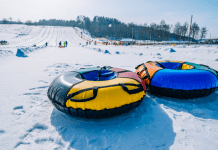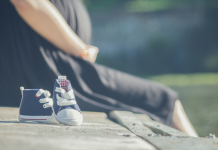I want to begin this article with a painful premise. Before your kids turn eighteen—likely before high school—they almost certainly will see something you wish they hadn’t on an electronic device. It is going to happen on their iPod or Kindle or your iPhone or their friend’s computer or smart phone. It will happen at your home or a friend’s home or at school or on the bus. Whether on purpose or by accident—it will happen. And the data bears this out.
One compilation of statistics states that 90% of kids between the ages of eight and sixteen have seen online pornography. 70% of children ages seven to eighteen have seen this material by accident, often while doing research for school. Another study, published back in 2008 reported years later as part of a feature in The New York Times found that 93% of teenage boys and 62% of teenage girls are exposed to online pornography during their adolescence. (And I contend the numbers would be MUCH higher in 2017 as smart phones are now everywhere.)
My daughter is thirteen. My son is nine. I have content blocks on my daughter’s iPod, and neither one is allowed to use my laptop unless doing so in my view. We have no premium channels that show nudity. However, I know that both of them have seen content on the internet that is not appropriate for children.
How did this happen? Here is how . . . they go to friends’ houses and ride school buses and curious kids will learn ways around what adults try to prevent.
I know the instinct to think, “This could never happen to my kid. She is monitored all the time. I know all of his friends. She is never unattended. He doesn’t have his own electronic devices. She would never even think to look for inappropriate content on the internet.”
I too wanted to believe my kids were immune from the garbage available on the world wide web. But beyond that, I also know that I cannot protect my kids every second of the day.
My son was visiting a friend when an older brother decided to look up “sexy” on YouTube. My daughter and her friend typed “boyfriends and girlfriends kissing” on her friend’s iPhone at an afterschool program. I’m not alone. Recent conversations with friends who have preteen children led to stories of “boobs” and “naked” being Googled. A sixth-grade girl had a boy ask her to send naked pictures. (She, wisely, did not comply with the request and told her mother right away.) A ten-year-old boy saw a video of a sex act on a friend’s iPod.
At a community social event last month, during which I sat at a table with seven other moms, every single one had a story. The list could go on and on of examples that have been shared with me from amazing and involved moms and dads who I admire and consider parenting role models.
Children are naturally curious about their bodies and feelings of sexuality. I grew up in the 1980s. Let’s be real here . . . just listening to every Prince song led to conversations with my friends about sex! I remember sitting in the basement of a friend’s house when we were ten or eleven and taking turns reading pages from the latest book with Fabio on the cover that her grandmother had left lying around. Around that same time? I dragged my two-volume dictionary to the backyard, and a neighbor boy and I looked up all of the body parts and other words that made us giggle. When I was in middle school, I went to a sleepover at another’s friend house. She showed me the closet where her dad kept all of his Playboys.
But it’s not the 1980s anymore. Sex and graphic violence and other adult themes are available on every handheld device. These images and videos cannot be hidden in a locked closet or stored under a parent’s bed. They are everywhere.
So, if you accept the premise with which I started this article, perhaps I can help you by sharing how I reacted.
First, I cried. I felt like a piece of my kids’ innocence had been destroyed. There was no putting that piece of childhood back into the bottle.
Next, I had multiple one-on-one conversations with my kids. I wanted them to know that it was natural for them to be curious about what they had seen. I told them I was not angry with them at all—just sad. Also, I wanted them to know that the human body is amazing and complicated. And I would answer any questions they had. But, I also stressed that the internet was no place to find accurate and respectful information about their bodies or their feelings or the opposite sex. I urged them to tell me if a friend ever showed them something that made them uncomfortable.
As a single mom, I told my son that I understood he may not want to talk to me about everything. We came up with a list of three men I trust and my son knows well. He knows he can pick one of them if he has a personal question. (I cleared this request with the guys in question, of course!)
Finally, I continue to do what I can to minimize their exposure to adult content on the internet. They do not have access to the internet with anything they can hold in their hands. Laptops used for school work are left on the kitchen table. When my daughter has a slumber party, I take away the girls’ electronic devices at 9:00pm, and all parents know this ahead of time. I try to learn about the newest filters and trackers. I make my son and his friends play outside as much as possible. They can stick with basketball and riding bikes and checking out what is stuck in the creek. My daughter doesn’t “play” a lot like her younger brother anymore. So, if her friends are inside my home, doors are open.
I answer any question they have about anything, and I do so honestly. Even when, maybe especially when, the subject is embarrassing. My kids need to know they can talk to me—so that when they face such content again, they will not have to struggle with their questions and concerns in silence.
With all this, however, I acknowledge that I cannot prevent everything. I only can hope to mitigate. I do not want to hover over my kids all the time. They need to learn how to navigate different circumstances and challenges and develop their own judgment when in a situation with friends that they know is not right. And I want them to learn these skills while still living with me so that we can talk through their experiences. My goal is to guide them—be it regarding online content or so many other things that will confront them as they move into and through their teenage years.
If your child has seen explicit or other inappropriate material on the internet, please know that you are not alone. It does not make you a bad mom. Let’s work together to protect our kids and have these important conversations.
Have you had conversations with your kids about the internet?
What steps do you take with your children to protect them from adult content?

















